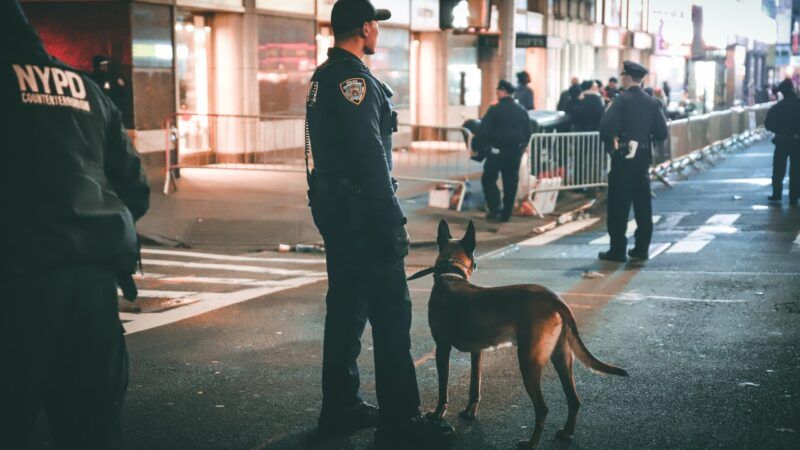Prisoners Sue Virginia Department of Corrections Over Canine Attacks
If police dogs assault innocent people at their handlers’ direction, it’s usually treated as the victim’s fault.

Two prisoners have filed federal lawsuits against the Virginia Department of Corrections alleging that guards at the Sussex 1 State Prison and the Red Onion State Prison unmuzzled dogs to attack and maul them. The prisoners, Curtis Garrett and Corey Johnson, say they sustained significant injuries in the incidents.
The sickening details reflect a bigger problem: If a police dog is hurt "in the line of duty," the person hurting the dog is charged with felony "assault on an officer." But if a police dog mauls someone, it is generally treated as the victim's fault—even when it clearly isn't.
The first suit alleges that on December 25, 2020, Curtis Garrett returned to his Sussex 1 cell after an altercation with another prisoner. Within minutes, two Patrol Canine Unit officers brought dogs to Garrett's cell. When Garrett turned around and put his hands behind his back, believing that he was about to be handcuffed and taken to solitary confinement, the officers unleashed the dogs and ordered them to attack him. "The two canines bit Mr. Garrett's left arm and right leg while the two officers punched and kicked Mr. Garrett repeatedly," the suit says. Garrett required dozens of stitches and suffered permanent nerve damage in his arm and leg.
The other incident took place at Red Onion State Prison, where Corey Johnson was also involved in an altercation with another prisoner. After guards fired several tear gas canisters at him, Johnson lay down on the ground. Instead of handcuffing him, the suit says, the guards shouted for their dogs to attack. The lawsuit alleges that "unlike the uneven, surface-level, or zigzagging wounds a canine might leave on a person who continues an altercation in defiance of official orders, Mr. Johnson's wounds were deep, clean, and had no jagged patterns because he had remained prostrated on the ground during the attack."
The Washington Post reports that prisoners have brought "numerous" complaints in Virginia, but because those inmates represented themselves, the state took no subsequent action to eliminate the use of dogs to attack prisoners. These suits, by contrast, were filed by A-list Washington firms and by the pressure group Rights Behind Bars.
A spokesperson for Rights Behind Bars argues in a statement that the practice of using police dogs to attack defenseless prisoners is "widespread" and is "not only barbaric—an abject act of dehumanization—but illegal and cannot be tolerated in a just society." Virginia, in particular, has a long history of using dogs against prisoners. The Virginia-based Interfaith Action for Human Rights says that it has heard from "dozens of prisoners in Virginia'' who have been brutalized and maimed in unprovoked dog attacks. Most of those incidents took place after prisoners were laying on the ground and had stopped fighting or resisting. Evidence suggests a disproportionate number of police dog bite victims are black men.
The use of dogs against unarmed and compliant prisoners should be treated as a crime. If police dogs are considered "officers," then their handlers and supervisors ought to be punished when they assault people who pose no threat.
